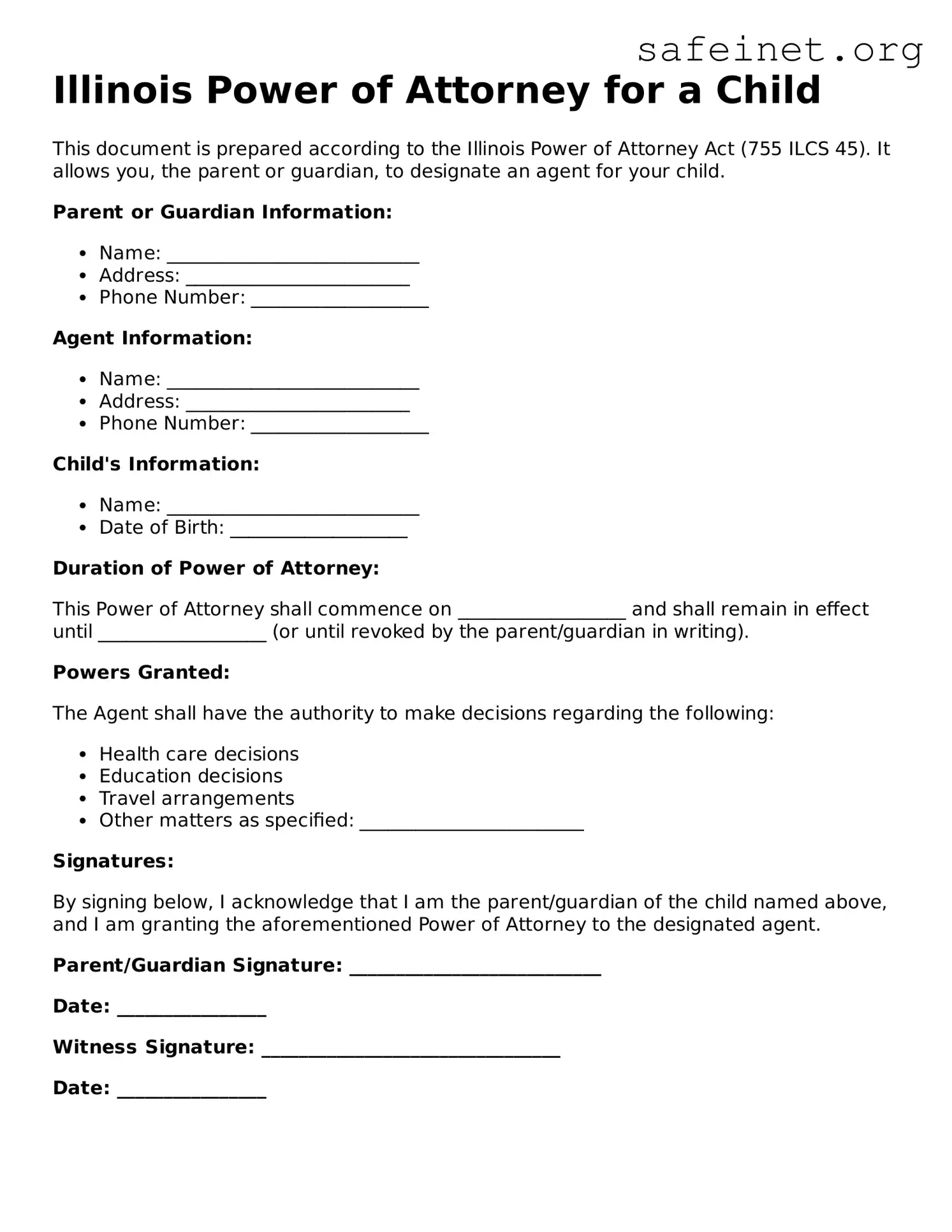What is the Illinois Power of Attorney for a Child form?
The Illinois Power of Attorney for a Child form is a legal document that allows a parent or guardian to give another person the authority to make decisions on behalf of their child. This could be necessary for various situations, such as if the parent or guardian needs to travel, work long hours, or is otherwise unavailable to care for the child. The form ensures that the designated individual has specific powers, which might include making health care decisions, enrolling the child in school, or authorizing medical treatment.
Who can be designated as the agent in the Power of Attorney for a Child?
The individual designated as the agent must be an adult, typically aged 18 or older. This can be a relative, family friend, or a trusted adult. It's crucial to select someone who understands the responsibilities involved in caring for a child and who will act in the child’s best interest. The form does not restrict the choice of agent and can be tailored based on the family’s unique circumstances and preferences.
How long is the Power of Attorney for a Child effective?
The Power of Attorney for a Child is effective until it is revoked by the parent or guardian, the specified period (if stated) expires, or the child reaches the age of 18. The form may also include provisions for terminating the authority if certain conditions are met. It’s essential to keep track of the status of the Power of Attorney, particularly if the situation changes or the original intent is no longer applicable.
Do I need to notarize the Power of Attorney for a Child form?
Yes, the Illinois Power of Attorney for a Child form must be signed in the presence of a notary public. This requirement helps to ensure that the document is legally valid and cannot be easily disputed. Notarization provides an additional layer of protection for both the child and the agent, as it verifies the identities of the parties involved and confirms that the document was signed willingly.
Can the Power of Attorney for a Child be revoked?
Absolutely, a Power of Attorney for a Child can be revoked by the parent or guardian at any time. To effectively revoke the document, it is recommended to provide a written notice of revocation to the agent and any relevant third parties, such as schools or medical providers. This helps avoid confusion and ensures that all parties are aware that the authority granted has been terminated.
